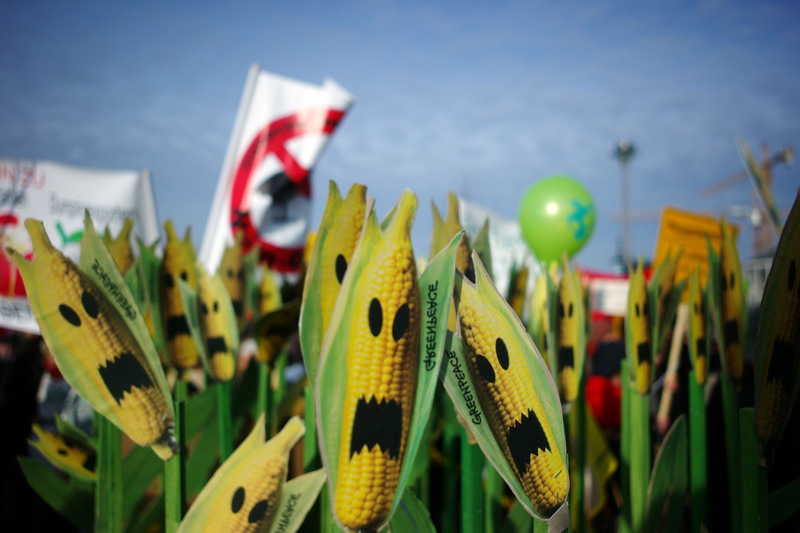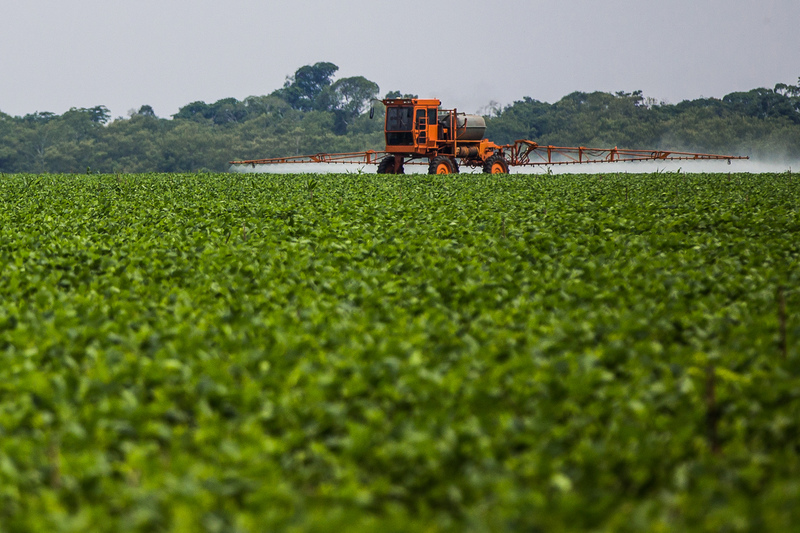Savio Carvalho
In early October, the United Nations Food and Agriculture Organisations (FAO) announced a shocking agreement with CropLife International – the global lobby group for corporations that manufacture, sell, and promote mainly pesticides and genetically engineered seeds. Some of the members of CropLife International are Bayer (Monsanto), BASF, and Syngenta, among others. This is why Greenpeace International joined up with 350 other organisations across the world
This agreement’s objective is “to work together and find new ways to transform agri-food systems and promote rural development through on the ground investment and innovation” as stated in the FAO press release
. Unfortunately, we should be very worried about FAO getting involved with corporations such as pesticide companies that are trying to market themselves as climate solutions and have consolidated their dominance on the seeds and crops sectors around the world through mega mergers like Bayer buying Monsanto. This agreement is truly disturbing because it allows more power to a very few large agriculture and food multinational corporations – which exist primarily to make money – rather than investing in a strong localised food system that can provide nutritious food to all while respecting ecological boundaries.

The FAO press release further states that the agreement intends to “reinforce the common goal shared by FAO and CropLife International to build sustainable food systems, boost farmer resilience to climate change and address zero hunger”. Does the FAO truly believe that the mission of the corporations involved with CropLive International is to “boost farmer resilience to climate change and address zero hunger”? At best, this is naive, and at worst, misleading.
The main mission of these corporations is to gain financial returns for their shareholders, not to feed people. There is already too much corporate control
over farming. By signing this agreement, the FAO is giving these big agriculture corporations renewed legitimacy and a free licence to further access and control the global food system.
This recent FAO-CropLife International agreement sends a wrong message about the direction the world should move towards food and greater food justice. This is somewhat surprising as other parts of the FAO
have finally recognised that ecological farming (agroecology), food sovereignty, and the people’s right to food are now modus operandi.They should know better than to cosy up to agriculture corporate giants which are the promoters of the industrial food system – the source of so many environmental and health problems

Back in 2009, a science-based multinational effort by International Assessment of Agricultural Knowledge, Science and Technology for Development (IAASTD)
generated a blueprint for a better food system with many practical policy suggestions for governments and agencies like FAO. More than 10 years later and in the midst of the COVID-19 pandemic, the IAASTD recommendations are still largely ignored despite their relevancy and urgency for implementation. We know what to do; we’re just not acting on what we know.
Previously, Greenpeace International has outlined what could be the principles for ecological farming. In many parts of the world such as India and Kenya for example, Greenpeace organisations have taken a part in the farming and food movements and will continue so. I can only hope the FAO, its Council and funders will soon wake up and join the wider movement for agroecology
and choose real people solutions over the fake promises of big agriculture corporations.
FAO, please walk the talk on agroecology and don’t side with those who want to make a quick profit at our expenses and at the expense of a healthy planet and our collective future.
Savio Carvalho is global lead for Greenpeace International Food and Forest.

No comments:
Post a Comment
Note: Only a member of this blog may post a comment.